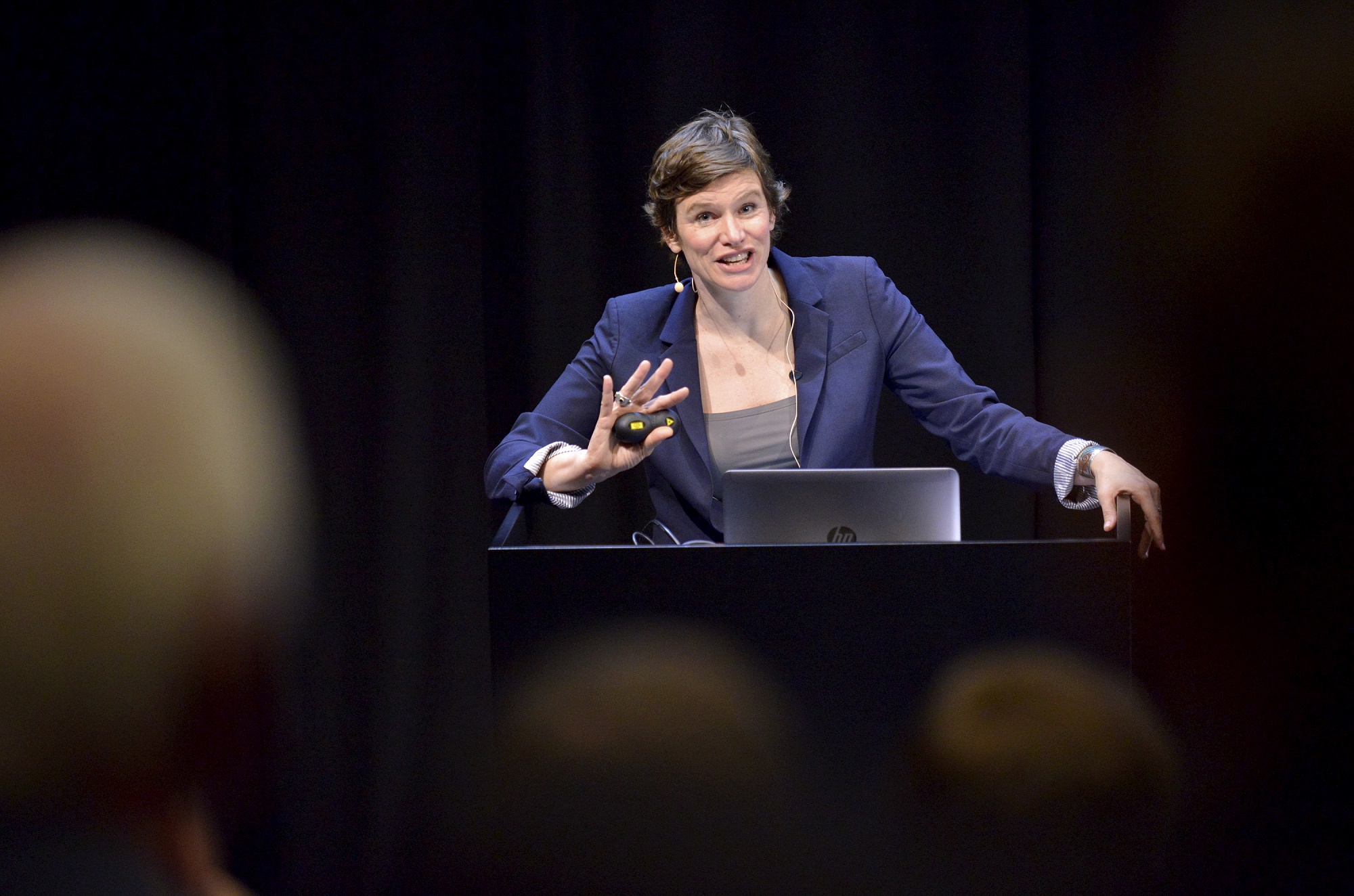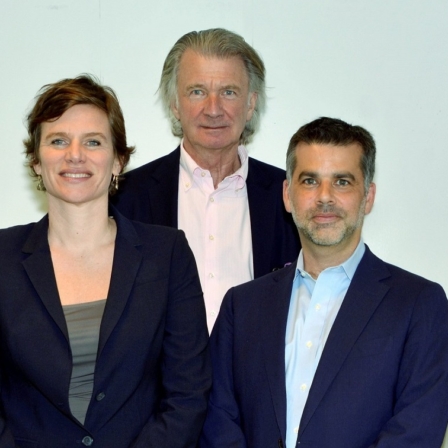Without a state with an entrepreneurial spirit, many innovations would have emerged stillborn or not at all, according to Mariana Mazzucato, Professor of the Economics of Innovation, in a speech to Sitra.
She was speaking as part of an event on the theme of the role of the state as a catalyst for innovation, organised by the Kalevi Sorsa Foundation and Tekes and hosted by Sitra on Tuesday 28 June. Regarded as something of a superstar in economics, Mariana Mazzucato addressed a full auditorium on the subject of innovation and industrial policies.
“The role of the state in innovation policy evokes a gloomy picture in today’s public discussions,” Mazzucato began. “The public sector is often seen as a bureaucratic hindrance rather than an enabler.”
Mariana Mazzucato, Professor of the Economics of Innovation at Sussex University, is one of the world’s leading researchers on industrial and innovation policies. Her bestseller, The Entrepreneurial State – Debunking Public vs. Private Sector Myths (2013), has been translated into numerous languages, and she advises various governments around the world. In her book, Mazzucato shows that the Federal State in the US has had a central role in the creation of post-Second World War technological breakthroughs and in the creation of the business emerging from them.
“Public investment in innovations has received little attention even though the state has played an important role in the birth of many practical innovations,” Mazzucato said. “We must do away with the public versus private sector juxtaposition.”
The state should take risks and have the courage to invest in research and experiments that would not take off otherwise. One example of this is Elon Musk’s Tesla, for which the public sector has provided funds amounting to hundreds of millions of dollars.
“When dealing with innovation policy, the public sector should learn to learn instead of seeking assurances. Agile experimentation and systematic learning based on it can carry us towards a state with a more entrepreneurial spirit resulting in innovations solving the biggest challenges in our society,” said Mazzucato.
According to Mazzucato, the state is not the leaden and bureaucratic institution that its critics have branded it. An entrepreneurial state is not only a risk-taker but also creates new markets.
Ecosystemic thinking needs to be streamlined
In addition to innovation policy, ecosystemic thinking was also debated at the event: “The number one problem in Finland’s economy is the erosion of its industrial structure,” according to Timo Hämäläinen, a leading expert at Sitra.
From the perspective of strengthening and reorganising the industrial structure, industrial and innovation policies are central. The economic crisis and the fundamental change of industrial structures have led to the return of industrial policies in many industrialised countries. The new philosophy emphasises that the state, together with the entrepreneurial sector, must play an active role in the development of new growth areas.
“The supporting role of the state does not mean just bringing in funds but also facilitating the use of platforms and creating infrastructure,” Hämäläinen pointed out. For example, active co-operation between companies and the public sector in developing new business takes place in the US and China. There is no reason why Finland couldn’t also use this approach.
According to Hämäläinen, assembling an ecosystem needs someone to bring the various potential parties together. “We must learn to find emerging novel ecosystem models in order to support them maximally. Currently, we do not have any proper processes or methods for this.”
There is light at the end of the tunnel, however. Tekes’ new programme model already implements, in practice, operational models for constructing new business ecosystems: “Moving important innovation participants to the Team Finland building also improves the conditions for joint activity and everyday culture,” said Tekes’ Development Manager Christopher Palmberg.
Others at the event also had thoughts on the way forward. For example, Professor Erkki Ormala from Aalto University believed that new talent and structures were needed for reforming innovation policy, while Antti Alaja from the Kalevi Sorsa Foundation said: “Alongside discussions on competitiveness, we must deal with the great challenges facing our society and know how to meet those particular challenges with our innovation policy.”





Recommended